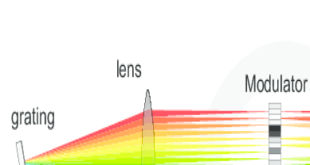Introduction In the ever-evolving landscape of scientific advancements, researchers have made significant strides in developing ultrasensitive instruments capable of detecting and quantifying energy at unprecedented scales. One such breakthrough technology is the ultrasensitive nanobolometer, a remarkable device that revolutionizes measurement capabilities. By combining the sensitivity of nanobolometers with the precision …
Read More »Quantum Simulators: Unlocking High-Energy Physics Challenges and Advancing Atomic Clocks with Large Qubits
Introduction: Quantum technologies have been making remarkable strides in recent years, offering exciting possibilities for solving complex problems and pushing the boundaries of scientific research. Among these advancements, quantum simulators have emerged as powerful tools that hold the potential to unlock the mysteries of high-energy physics and revolutionize atomic clocks. …
Read More »Unlocking the Future: Exploring the Potential of Quantum-Inspired Robotics and Autonomous Systems
Introduction As technology continues to advance at an unprecedented pace, our understanding of the quantum world has opened up new possibilities in various fields. One such exciting realm is the intersection of quantum physics and robotics, giving rise to quantum-inspired robotics and autonomous systems. These cutting-edge technologies have the potential …
Read More »Quantum Machine Learning Algorithms: Unveiling the Power of Quantum Computing in AI
In recent years, the field of quantum computing has gained significant attention for its potential to revolutionize various domains. One area where quantum computing holds immense promise is in the realm of machine learning. Quantum machine learning algorithms combine the power of quantum computing with the capabilities of artificial intelligence, …
Read More »Quantum Technologies for Next-Generation C4ISR: Revolutionizing Defense Capabilities
In the ever-evolving landscape of defense operations, staying ahead of the curve is crucial for maintaining national security. Command, control, communications, computers, intelligence, surveillance, and reconnaissance (C4ISR) systems form the backbone of modern military operations. However, the challenges posed by the vast amounts of data, computational limitations, and the need …
Read More »On-Chip Microresonators: A Game-Changer for Quantum Information Processing and Optical Communications
Microresonators are tiny devices that are capable of confining light to a very small volume, typically on the order of micrometers or less. They are usually made of materials with high refractive indices, such as silicon or silica, and are used in a variety of applications, including optical communication, sensing, …
Read More »Revolutionizing Underwater Exploration: Quantum Sensing for Advanced Marine Seismic Acoustic Technology
Introduction: The mysterious depths of the ocean have long captivated the human imagination, holding untold treasures, resources, and the promise of groundbreaking discoveries. In our quest to explore and understand the underwater world, technological advancements have played a pivotal role. One such groundbreaking innovation, quantum sensing, is now poised to …
Read More »Quantum Control: Unlocking the Power of the Quantum Realm
In the realm of quantum mechanics, where the laws of the subatomic world reign supreme, lies a fascinating technology known as quantum control. This groundbreaking concept revolves around the art of manipulating and regulating quantum systems, such as atoms, ions, and qubits, to achieve specific outcomes. Quantum control has emerged …
Read More »Analog Quantum Computers: Bridging the Gap Between Classical and Quantum Computing
Introduction Quantum computing, with its unparalleled processing capabilities, has captured the imagination of scientists, researchers, and tech enthusiasts alike. In recent years, quantum computers have shown promise in solving complex problems far beyond the reach of classical computers. However, building and controlling quantum systems is a formidable challenge, prompting the …
Read More »Quantum Propulsion: Revolutionizing Interplanetary Space Propulsion with Light-Thrust Engines
Introduction The dream of exploring the cosmos beyond our solar system has captivated the imagination of scientists, visionaries, and space enthusiasts for decades. However, the vast distances and limitations of traditional rocket propulsion have posed significant challenges to interstellar travel. Enter quantum propulsion and its revolutionary concept of light-thrust engines, …
Read More » International Defense Security & Technology Your trusted Source for News, Research and Analysis
International Defense Security & Technology Your trusted Source for News, Research and Analysis


